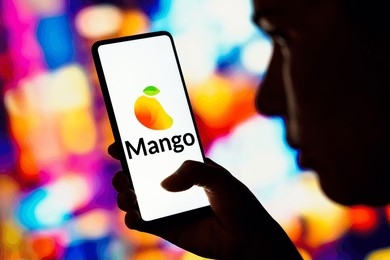In a significant development for the cryptocurrency industry, the trial of Avraham Eisenberg, the accused perpetrator of the $100 million Mango Markets exploit, has commenced in a New York federal court.
Details Of The Mango Markets Scandal
During the opening arguments presented by Assistant US Attorney Tian Huang, Eisenberg’s actions on October 11, 2022, were characterized as fraud and market manipulation.
Huang outlined how Eisenberg allegedly inflated the exchange’s MNGO token by 1000% in just 20 minutes and exploited Mango Markets by convincing them that he owned a significant amount.
Eisenberg is accused of borrowing over $110 million in cryptocurrency, later revealed as theft rather than a legitimate loan.
The prosecution further detailed Eisenberg’s alleged efforts to conceal his true identity, including posing as a Ukrainian woman and his swift escape from the country the day after the exploit.
Despite offering to return some stolen funds, Mango Markets still incurred substantial losses. Eisenberg was arrested upon his return to the United States several months later and charged with fraud.
As the trial progressed on Tuesday, the defense, led by Eisenberg’s counsel Sanford Talkin, argued that Mango Markets and Eisenberg operated in the “speculative realm” of cryptocurrency trading, where the risks and rewards are ‘significant.”
Talkin insists that Eisenberg executed a “successful trade,” risked $13 million of his own money, and operated within the “bounds of transparency.
The defense emphasizes that every trade has a winning and a losing side and asserts that executing a profitable trade is not inherently illegal.
Considering all of these factors, Mango Markets is seeking damages in the amount of $47 million, plus interest, calculated from the date of the attack.
Eisenberg Trial’s Impact On Blockchain Technology
The case also raises broader questions regarding the role of autonomous code and smart contracts in the crypto industry.
Crypto lawyer Gabriel Shapiro points out that the final ruling on Eisenberg’s case could have far-reaching consequences for the industry, potentially challenging the notion of finality and immutability associated with autonomous code.
In a recent post on the social media site X (formerly Twitter), Shapiro raised whether courts intervening retroactively in the results of autonomous code would render such code illegal. Shapiro stated in its post:
This is a much more important case to the future of crypto than SBF or Terra, but y’all are sleeping on it. . . ask yourself: if courts can post hoc contravene the results of autonomous code, is autonomous code essentially illegal? the whole idea is finality and immutability…
As the trial progresses and arguments are presented from both sides, how the court will rule on the charges against Avraham Eisenberg remains to be seen.
The ruling and subsequent discussions will undoubtedly reverberate throughout the cryptocurrency community, shedding light on blockchain technology’s legal landscape and its potential impact on the industry’s future.
Following the highly anticipated trial of Mango Markets, the native token MNGO has maintained its remarkable upward trajectory, experiencing a significant recovery of 124% year-to-date.
Moreover, over the past 30 days, the token has demonstrated a noteworthy uptrend of 174%, resulting in the current trading price for MNGO standing at $0.0399.
Featured image from Shutterstock, chart from TradingView.com
Bitcoinist.comRead More



